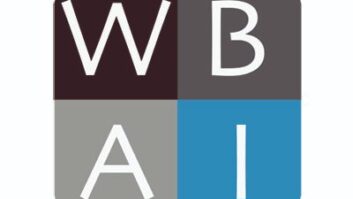The Federal Communications Commission again weighed in on a tricky and confusing situation — is it within the rules for a commercial translator to be exempt from paying commercial renewal fees if the licensee of the translator is a nonprofit?
The commission has weighed in on this issue several times in the last few weeks. In the current case, the issue was again brought to light by Triangle Access Broadcasting which objected to the renewal application being filed by Educational Media Foundation (EMF). Specifically, Triangle objected the renewal of EMF’s translator W293CM in Graysville, Ala.
[Read: FCC Rejects Call to Let Two Licenses Expire Over Nonprofit Kerfuffle]
Triangle alleged that since the EMF translator is airing commercial advertisements — which are not permitted under the FCC Rules for noncommercial educational stations (NCEs) — it hasn’t duly paid the required application and regulator fees for the translator. Triangle said since the translator is licensed to retransmit the commercial station WERC(FM), owned by IHM LLC, then EMF should not be extended the exemptions that are offered to NCEs. In short, the translator is a commercial translator, Triangle said. As a result, the Media Bureau should press EMF to pay the required commercial broadcasting fees upon its renewal or that its license should be allowed to expire.
EMF responded to say that the Triangle argument was moot. EMF said that not only is it exempt from paying regulatory fees because it is a 501 (c)(3) nonprofit but asked where was this argument when it filed previous applications?
The chief of the Audio Division of the Media Bureau responded by reminding both parties that it has the authority to renew applications for those stations that serve the public interest, for those stations which have not committed any serious violations to the Communications Act of 1934 and for those stations that do not exhibit a serious pattern of abuse. The bureau also pointed the licensees to Section 8 of the act and Section 1.11 of the FCC rules that cover the process of assessing and collecting application fees as well as the exemptions that exist for some of those fees.
In this case, as in others of recent weeks, the bureau first looked to whether the primary station is NCE or commercial. In this case, Triangle is correct: the EMF translator is rebroadcasting a commercial station owned by a commercial entity. If the facts ended there, the translator would not be entitled to claim the NCE exemption.
However — and here is the crucial part — Section 1.11 of the rules also provides a separate exemption based on the nonprofit status of the licensee rather than the station. “That exemption is available to those licensees who have established their nonprofit status under Section 501 of the Internal Revenue Code,” wrote Albert Shuldiner, chief of the Audio Division, in its order. And the bureau confirmed that EMF is recognized as a nonprofit under IRS code. “Because nonprofit entities are exempt from regulatory fees, we conclude that EMF is not required to pay regulatory fees for the translator,” the bureau said.
As a result, the bureau agreed to renew the license for W293CM and denied the objection filed by Triangle.











